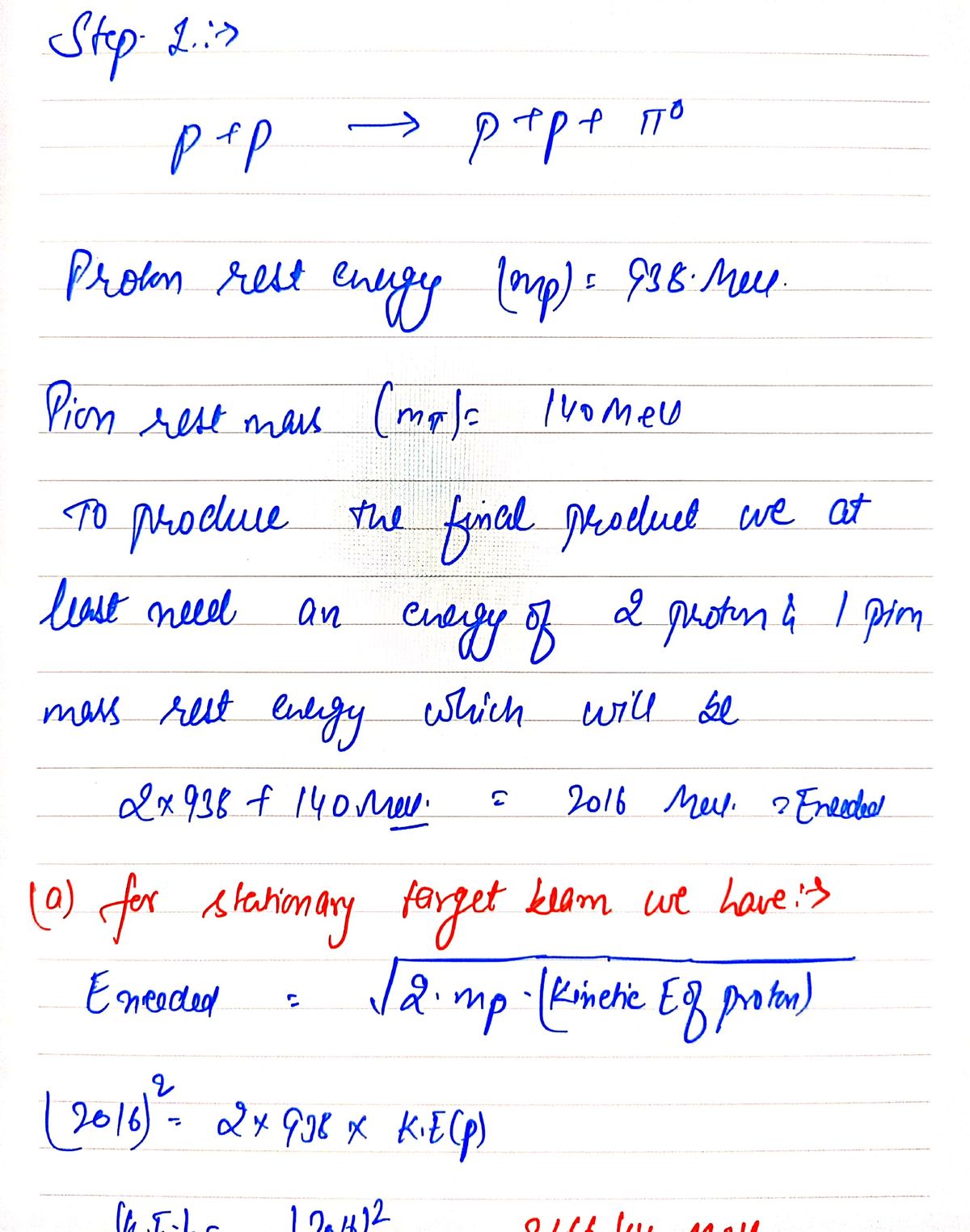An electrically neutral pion (º) can be created in a collision between two protons. (The protons still exist after the interaction.) Thus the reaction is p+p-->p+p+⁰ The proton rest energy is 938 MeV, and the pion rest energy is 140 MeV. Imagine that you are designing an accelerator, and you want to make sure that it has sufficient energy to produce a nº. (a) If the accelerator shoots a beam of protons onto a stationary proton target, what is the minimum (threshold) kinetic energy per proton? (b) If the accelerator has two colliding beams of protons (both with the same energy), then what is the minimum (threshold) kinetic energy per proton?
An electrically neutral pion (º) can be created in a collision between two protons. (The protons still exist after the interaction.) Thus the reaction is p+p-->p+p+⁰ The proton rest energy is 938 MeV, and the pion rest energy is 140 MeV. Imagine that you are designing an accelerator, and you want to make sure that it has sufficient energy to produce a nº. (a) If the accelerator shoots a beam of protons onto a stationary proton target, what is the minimum (threshold) kinetic energy per proton? (b) If the accelerator has two colliding beams of protons (both with the same energy), then what is the minimum (threshold) kinetic energy per proton?
Related questions
Question

Transcribed Image Text:An electrically neutral pion (º) can be created in a collision between two protons. (The protons still exist after the interaction.) Thus the
reaction is
p+р-->p+p+⁰°
The proton rest energy is 938 MeV, and the pion rest energy is 140 MeV. Imagine that you are designing an accelerator, and you want to make
sure that it has sufficient energy to produce a .
(a) If the accelerator shoots a beam of protons onto a stationary proton target, what is the minimum (threshold) kinetic energy per proton?
(b) If the accelerator has two colliding beams of protons (both with the same energy), then what is the minimum (threshold) kinetic energy per
proton?
Expert Solution
Step 1
In this case we have two condition. In first condition we have fixed target beam and in second case we have moving target beam and the minimum energy require for the beam to create pion is sum of the rest mass of two proton and one pion :

Trending now
This is a popular solution!
Step by step
Solved in 2 steps with 2 images
